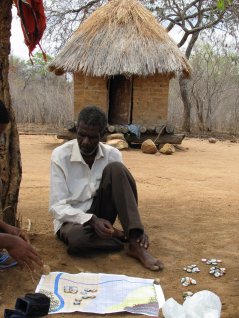Student information
Agronomy, livelihoods, and development
Contact persons:
Maja Slingerland: maja.slingerland@wur.nl
Jens Andersson: jens.andersson@wur.nl
Katrien Descheemaeker: katrien.descheemaeker@wur.nl
Food systems need to change in response to population growth, urbanisation, climate change, environmental problems, poverty, and international agreements such as the SDGs. In food systems both producers and consumers need attention. Producers are at the same time custodians of the land, managers of natural resources, recipients of policies and actors in supply chains. Many policies, technologies and services have been proposed to smallholders to increase their yields, their incomes and other livelihood outcomes, such as food and nutrition security. Yet, progress is often (s)low. The adoption or non-adoption of new agricultural technologies or agronomic practices is often explained by farmers’ resource endowments, costs or risks associated with the technology.

(1) At PPS we look beyond these characteristics of adopting and non-adopting farmers, trying to understand farmers’ (new) technology use in the context of their farm, livelihood orientations and the wider agricultural system in which they operate. A research topic is for instance to investigate farmers’ wider aspirations and personal capabilities and how these explain responses to proposed interventions.
(2) Studies of farmers’ uptake of new technologies and agronomic practices, also often overlook that technology is not neutral. Technology may have benefits for wealthier farmers, for specific age or gender groups, but may at the same have negative effects on others. Therefore, another focus of research is social equity and equality related to technology introductions and use.
(3) Next to farming technologies, there are also wider, institutional factors that play a role, such as the terms of engagement of smallholders in supply chains. Do farmers sell their produce either individually or collectively, does the buyer provide knowledge or inputs, are we talking about contract farming, is there a certification scheme binding farmer to consumers? The linkage between farmers’ engagement in supply chains and farm management practices is a topic of research. Service delivery (by supply chains or governments) and how services fit to farmers needs and aspirations is another topic of research within this theme. Whereas supply chain research often focusses on a specific commodity, at PPS we take the farmer as entry point because farmers are known to participate in different (domestic) supply chains guiding their resource allocation decisions.
(4) When we focus on the relation between the consumer and farmers, topics of research are for instance the translation of consumers concerns in certification. Certification can either focus on quality of food (nutrition, safety) or on safeguarding the natural resources while producing it (no deforestation, no pollution, low GHG emissions), both affecting farmers agronomic practices. In this topic we focus on international commodity chains (cocoa, palm oil, cotton) but certainly also on domestic value chains (maize, chicken, milk, soybean) which become increasingly important given regional economic agreements and the increase in domestic demand by fast growing cities.
(5) Since there is a growing interest in developing countries in the domestic production of the ingredients for a healthy diet, plant production research increasingly focuses on nutrition and healthy diets as production outcomes and livelihood objectives.
(6) Finally, while smallholder farming contributes to food security and incomes of farming households, making a living from farming is increasingly difficult. Smallholder farmers often depend on a range of activities to make living, and this affects the way they farm and allocate resources to farming. A major focus in agricultural development is therefore how smallholders can achieve a ‘living income’, as the minimum for a decent life including the possibility to pay for healthcare, education, housing, clothing etc. In this theme we do research on interventions that allow farmers to reach a living income.